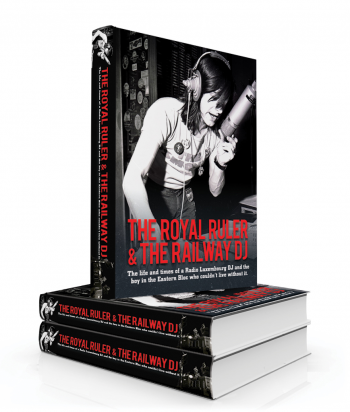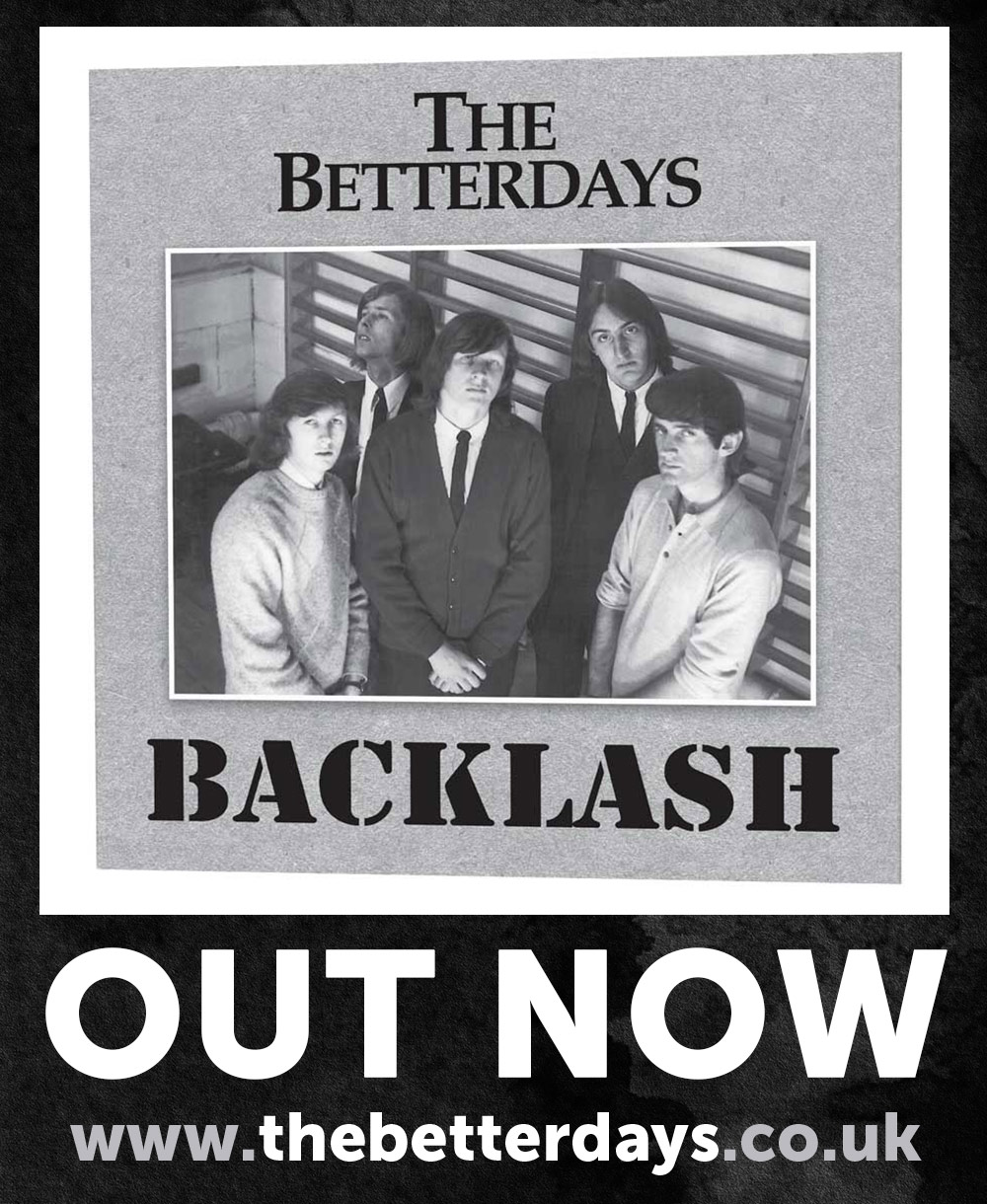 (4 / 5)
(4 / 5)
Writing this review while listening to random tunes, and what comes on: “Paperback Writer” by The Beatles. I kid you not. Spooky huh? I’ve got the hardback issue, @ £25 a pop, 440 pages, writing to preview the publication of the paperback version due in just over a week’s time.
As a kid born in the last throws of the 1950s, in a remote village in the UK countryside, eventually I used to do what many youngsters across the land did; sneak a portable transistor radio into my bedroom, hide under the sheets, stick the radio to my ear, and on a low volume so as not to get busted by my parents, tune in to Fabulous 208, Radio Luxembourg. I loved Emperor Rosko, Stuart Henry and the others.
The fading in out of the signal and picking up interference from other European stations was all part of the action. The constant adverts were a pain. I have the jingle for the “208 Power Play, ppppllaaayyy…” indelibly etched into my memory. Where they played the same track on the hour, every hour, in every show. If it was a song you liked, great. If it was a song that stunk, it was torture.
Tony Prince was one of the stations biggest star DJs. The Royal Ruler as he was known. A very switched on guy. The President of the Elvis Presley fan club, the man behind the DMC publishing empire and the annual World DJ Championships. A pioneer in the area of electronic music, he was one of those behind the introduction of legal remixing of tracks for club DJs, in the 80s and 90s. He launched and edited the clubber’s lifestyle magazine, Mixmag, which helped to develop and brand clubs and superstar DJs, helping to turn DJs into the new rock and roll heroes.
DMC was founded in 1983 and soon established itself as the largest DJ organisation in the world with headquarters in the UK, USA and branches in over 30 countries. In welcoming the new generation of the DJ and club culture, DMC became the first company to embrace the art of remixing and in the process inspired DJs across the globe to become music producers. DMC has also been responsible for promoting the club scene across the world organising events in over 75 countries alongside the legendary DMC World DJ Championships – now in it’s 29th year.
Tony kicked off his career in music as a singer and guitarist in the 60s, but he was thrown out of the Musicians Union for refusing to adhere to their ban of playing records in the dance halls, thus they thought; putting musicians out of work. In 1965, he presented the TV show “Discs-a-Go-Go,’ introducing the hit-makers of the day, before his first job on radio, as a DJ on board the Radio Caroline pirate ship, the one that was the subject of the hit film, “The Boat That Rocked”. After pirate radio was made illegal, in 1968 he joined Radio Luxembourg 208, where he stayed for 16 heady years.
Tony was part of the first live DJ team – living and broadcasting live from the Grand Duchy of Luxembourg to an estimated 100 million Trans-European listeners every night – which included Tony Prince, Noel Edmonds, Paul Burnett and David “Kid” Jensen. For many of us eager listeners across UK and Europe, it was the sole source of hearing the music arriving in the Swinging 60s, and it helped launch and propel the careers of many legends, including The Beatles, The Rolling Stones, Led Zeppelin, Elvis and even The Osmonds (well, we can forgive the latter!)
This book is a rather clever idea. It not only recounts Tony’s antics and gives him an autobiographical moment in the spotlight, peppered with all the big names he rubbed shoulders with. It also adds a second author to the mix (see what I did there?); Jan Sestak.
Jan grew up in Czechoslovakia when it was closed off behind the iron curtain, and listening to the radio or passing on knowledge of the free Western World was actually a crime that could get you banged up. People disappeared from their homes forever, taken by the Czechoslovak Secret Police, just for voicing an opinion. Their Gestapo predecessors imposed a death sentence on anyone caught listening to western radio stations.
Jan and his family lived in fear, like most citizens, but Jan had a burning desire to learn English, and he loved music and finding out about life outside of his communist controlled and closed off country. As he became a teenager, he discovered Radio Luxembourg and became consumed by the music and the DJs, even though he and his pals didn’t understand a lot of the lyrics or some of what the DJs said. But through the station and the radio, he understood the excitement of things taking place in the west, giving him and his closest friends a sense of hope that life could be a lot better and interesting than the life they were forced to live under the Communist flag.
The book’s format is as snippets from each writer in turn, like diary entries. While Tony recounts lots of anecdotes about his interaction with stars such as Elvis, Paul McCartney and Led Zeppelin, Jan reveals what took place during the Russian invasion of his country, and what happened to the teenage lives afterwards, under communist rule.
How Radio Luxembourg was his saviour, how he struggled to build a record collection and eventually was nicknamed “The Railway DJ”, hosting illegal parties with a handful of black market western pop records he first heard on Fab 208. A disused railway station became his venue, as secretly invited kids from the nearby town trudged through the snow to hear him play The Beatles and The Rolling Stones. Jan’s parents spent years in Nazi Concentration Camps.
Tony Prince and Jan first met over 30 years ago when he was the first Western DJ to perform behind the Iron Curtain, soon after the Russian invasion of Czechoslovakia. Some 30 years later they met again when Tony was part of a Radio Luxembourg reunion. It was then, the two decided to write about their extraordinary and extremely different lives. Combining their two very different life stories; both lives linked by a love of music and bound together by Radio Luxembourg and the fight for free radio in the UK. Tales of excess all areas, juxtapose stories of deprivization, oppression and living in abject fear. Tony had the world at his feet; Jan’s feet desperately yearned to get out into the free world.
The book is a quite different take on the usual “read about how great I am (or was)” format of most showbiz autobiographies. It will hold your attention as regards the emotional side of Jan’s story, make you smile as regards Tony’s cheeky nature and exploits. But for me, it really puts into context how freedom of speech must never be taken for granted, and is a valuable source of social history.
Being on the radio as a ‘gob on a stick’ may have been a job and a great way of life for Tony. But for Jan, it meant much, much more indeed. Note to Ken Loach; here’s your next film project right here…
By Simon Redley
 (1 / 5) ‘Dull Zone’
(1 / 5) ‘Dull Zone’ (2 / 5) ‘OK Zone’
(2 / 5) ‘OK Zone’ (3 / 5) ‘Decent Zone’
(3 / 5) ‘Decent Zone’ (4 / 5) ‘Super Zone’
(4 / 5) ‘Super Zone’ (5 / 5) ‘Awesome Zone’
(5 / 5) ‘Awesome Zone’





